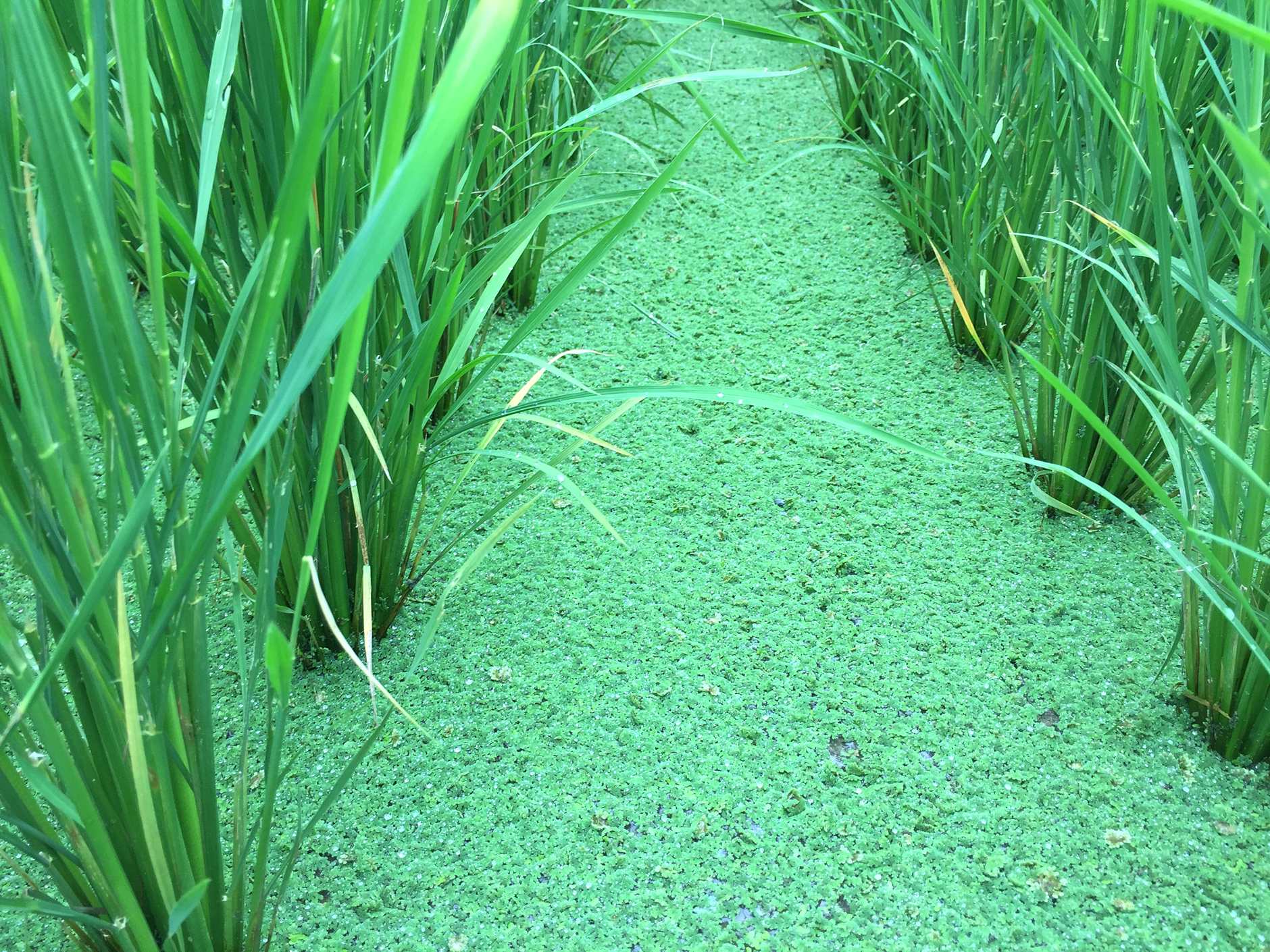Rice fields are stocked with "Manjianghong" to control weeds and are naturally high in nitrogen fertilizer, so why can't rice fields be pushed in Taiwan?
Share1.3K + 1 Tweet EmailShares 1.3K
There is a wonderful way to control weeds in friendly rice fields! The experiment of raising aquatic fern "Manjianghong" in Taichung District Agricultural improvement Farm (Taichung Field) of the Council of Agriculture can not only restrain weeds, increase soil nitrogen fertilizer, but even increase rice yield. However, even if there are many benefits, few farmers have tried to popularize it for many years, mainly because there are few red seeds in Manchuria, and farmers must have a pool to cultivate them in order to produce enough to be used in rice fields, so farmers are less willing to try.
Yang Shu-Hua, a female farmer, says that Thailand's KKF natural farming method also promotes this method, but Thailand has paddy fields all year round, and Manjianghong can continue to reproduce and grow. she does it in Tainan, and because the rotation of flood and drought can not make Manchurian red grow steadily, she tries to cultivate Manjianghong in a washbasin. "but if you put it on a field of one or two points, the quantity of Manchurian red is not enough." She warns that the snail will also eat Manjianghong, and the paddy field will face more snails. "if all the snails eat Manjianghong and don't eat rice, it's not bad."


Manjianghong can also be used to control weeds in taro fields (photo source / Taichung Agricultural Reform Farm)
Yang Shuhua: the actual operation is not smooth.
Yang Shuhua actually raised Manjianghong in rice fields, but it didn't go well. She said that she went to the water resources area to catch Manjianghong and came back for stocking, but the quantity was not enough to cover the whole rice field. In the early growth stage of rice, which needs to restrain weeds most, Manjianghong propagates slowly, so it is difficult to achieve the effect.
Although Thailand's KKF promotes this method, Yang points out that there are paddy fields all year round, and Manjianghong can continue to reproduce and grow, while his own field is a paddy-drought rotation, and the paddy fields are sun-dried, and Manjianghong dies. Even if it can become a nutrient in the field, the next phase of rice cultivation will face the dilemma that there is no Manjianghong to be stocked. Yang also tried to cultivate Manjianghong in a washbasin, "but if you put it on a field of one or two points, the quantity of Manchurian red is not enough." There is no extra pool to cultivate Manjianghong, so we can only give it up in the end.
Yang believes that Ilan is a year-round paddy field, so it may be better to try to breed Manjianghong in the field. However, the snail will also eat Manjianghong, and the paddy field will face more snails. "if all the snails eat Manjianghong and don't eat rice, it would be nice." It's just that a balance must be found between the suppression of weeds and the food grab of longevity snails.
Share1.3K + 1 Tweet EmailShares 1.3K
- Prev

Luo Shengwen / "taking Animals as a Mirror" to explore the relationship between oneself and animals
Luo Shengwen / "taking Animals as a Mirror" to explore the relationship between oneself and animals
- Next

2018 New Taipei City Hot Spring Festival start, super-worth good Kangquan because of you!
The annual New Taipei Hot Spring Festival officially starts today! New Taipei City also has a magnificent sea view and beautiful scenery, the unique geological environment has many kinds of hot springs, including Wulai beauty soup, Jinshan.
Related
- A course of planting techniques and methods on how to grow carrots
- How to plant the latest tulips?
- Is it better to pick tea in the morning or in the afternoon? When is the best time for tea to be picked? what is the third or fifth tea?
- Launch Yuanxiao Happy combination Haocha + Tea Yuan healthy Taste
- Penghu Tourism "Fireworks 20 Parade with You"
- 2022 West Lake Happiness holds "Digital Revitalization Voucher" and draws iphone13 and laptop.
- Banqiao Fuzhou social houses are designed to change start-up combined with police elimination to create a safe and livable environment
- The convenient measure of "mechanical weeding" in Xinbei has been abused and the Agriculture Bureau has imposed heavy penalties on the illegal land consolidation.
- Changgeng University Joins Hands with Four Memory Factories to Rescue Memory Talent Shortage
- The list of Taiwan's top 100 MVP managers is listed by the Director-General of the Farmers' Association of Sanxia District.

